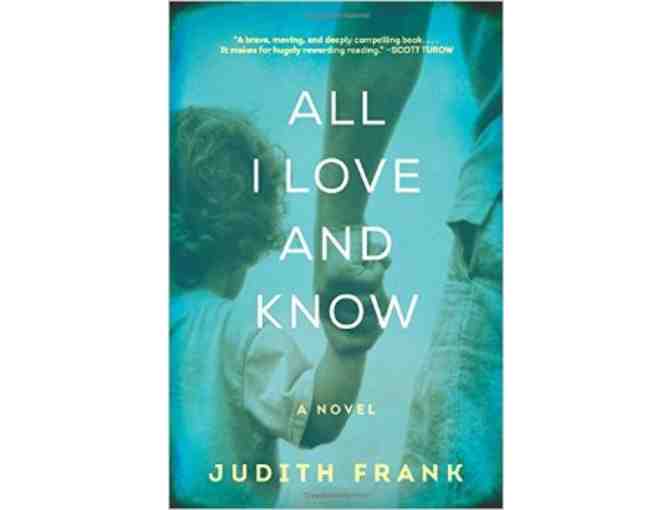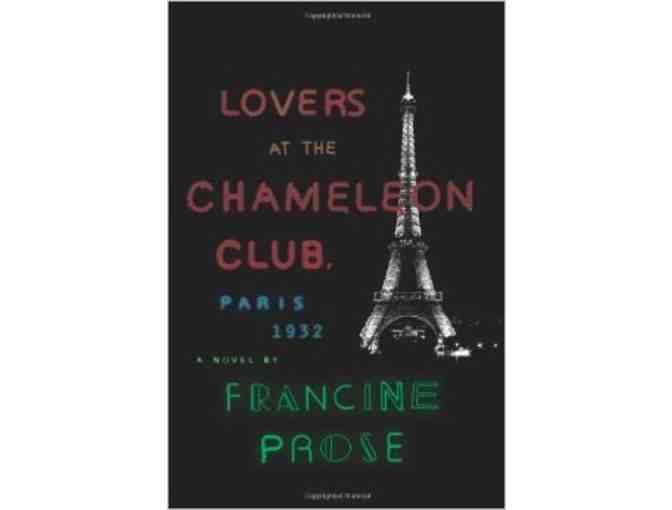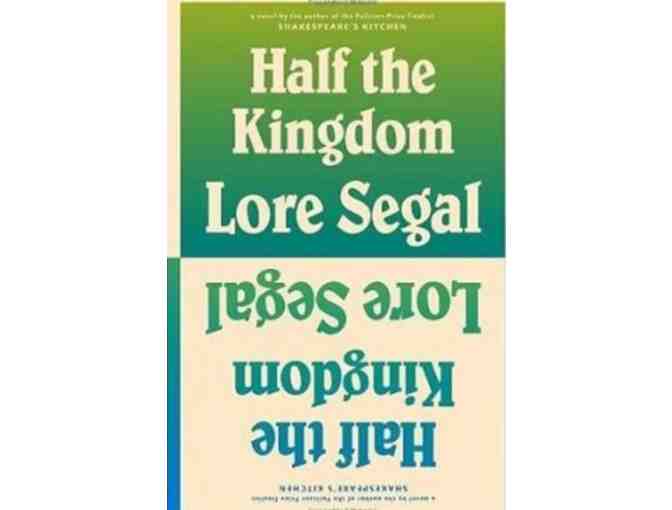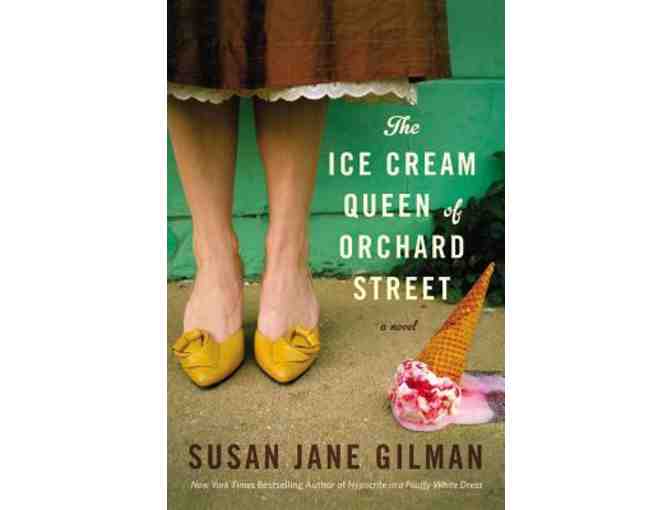Novels by Judith Frank, Susan Jane Gilman, Lore Segal and Francine Prose,

Item Number: 124
Time Left: CLOSED



Description
The Ice Cream Queen of Orchard Street, by Susan Jane Gilman.
In 1913, little Malka Treynovsky flees Russia with her family. Bedazzled by tales of gold and movie stardom, she tricks them into buying tickets for America. Yet no sooner do they land on the squalid Lower East Side of Manhattan, than Malka is crippled and abandoned in the street.
Taken in by a tough-loving Italian ices peddler, she manages to survive through cunning and inventiveness. As she learns the secrets of his trade, she begins to shape her own destiny. She falls in love with a gorgeous, illiterate radical named Albert, and they set off across America in an ice cream truck. Slowly, she transforms herself into Lillian Dunkle, "The Ice Cream Queen" -- doyenne of an empire of ice cream franchises and a celebrated television personality.
Lillian's rise to fame and fortune spans seventy years and is inextricably linked to the course of American history itself, from Prohibition to the disco days of Studio 54. Yet Lillian Dunkle is nothing like the whimsical motherly persona she crafts for herself in the media. Conniving, profane, and irreverent, she is a supremely complex woman who prefers a good stiff drink to an ice cream cone. And when her past begins to catch up with her, everything she has spent her life building is at stake.
Half the Kingdom, by Lore Segal.
Half the Kingdom opens in a hospital emergency room where a crisis is in progress. Anyone over 62 who sets foot in the E.R.--patient, relative, caregiver--goes bonkers. For lack of a better diagnosis, the disorder has been tagged "copycat Alzheimer's."
Fans of Segal's fiction should feel right at home in this darkly comic novel. For decades, an ever-shifting circle of characters has populated her New Yorker stories, as well as longer works like "Other People's Houses," "Her First American" and "Shakespeare"s Kitchen." Now some of these characters are back and, inevitably, they've grown old.--NYTimes
http://www.nytimes.com/2013/09/29/books/review/half-the-kingdom-by-lore-segal.html
Lovers at the Chameleon Club, Paris 1932, by Francine Prose.
Even the most restrained plot summary of Francine Prose's latest novel sounds like a teaser for a late night Lifetime TV movie. Here goes: In the Paris of the late 1920s, a butch lesbian race car driver named Lou Villars has her license revoked by the French government for daring to dress as a man in public. Lou goes on to become a performer in a risque review at the Chameleon Club, a smoky nightclub where threadbare artists and thrill-seeking aristocrats mingle in the half-light. Hitler rises to power and, through an acquaintance on the old race car circuit, Lou is invited to be his special guest at the 1936 Olympics. There, she's recruited as spy for Germany. In occupied Paris, she works as a Nazi collaborator and torturer. Late in the war, on a lonely road in the French countryside, Lou Villars receives her just deserts at the hands of the French Resistance.
Whew. That's a whopper of a tale from a writer who's known for championing a sophisticated literary style over the more pedestrian pleasures of storytelling. Prose aims to have it both ways in this new novel called Lovers at the Chameleon Club, Paris 1932. She gives us that big story, but she tells it in intricate fashion, through jarring and sometimes contradictory testimony in the form of letters, memoirs left behind by supporting characters, a novel authored by a naughty novelist modeled on Henry Miller and a contemporary biography of Lou Villars written by a feminist scholar. All these documents are fictitious of course, but the central plot of Prose's novel is based in fact. Prose says she was inspired by a black and white photograph called "Lesbian Couple at Le Monocle, 1932" taken by the Hungarian-born French photographer Brassai. The woman in that photo who's sporting short hair and a tuxedo was a professional athlete named Violette Morris; she worked for the Gestapo during the German occupation of Paris. Prose's male photographer character, named Gabor, is modeled on Brassai.--NPR
All I Love and Know, by Judith Frank.
Told with the storytelling power and emotional fidelity of Wally Lamb, this is a searing drama of a modern American family on the brink of dissolution, one that explores adoption, gay marriage, and love lost and found.
For years, Matthew Greene and Daniel Rosen have enjoyed a quiet domestic life together in Northampton, Massachusetts. Opposites in many ways, they have grown together and made their relationship work. But when they learn that Daniel's twin brother and sister-in-law have been killed in a bombing in Jerusalem, their lives are suddenly, utterly transformed.
In dealing with their families and the need to make a decision about who will raise the deceased couple's two children, both Matthew and Daniel are confronted with challenges that strike at the very heart of their relationship. What is Matthew's place in an extended family that does not completely accept him or the commitment he and Daniel have made? How do Daniel's questions about his identity as a Jewish man affect his life as a gay American? Tensions only intensify when they learn that the deceased parents wanted Matthew and Daniel to adopt the children--six-year-old Gal, and baby Noam.
Special Instructions
Winner is responsible for $7.50 handling and shipping to anywhere in the U.S.A.